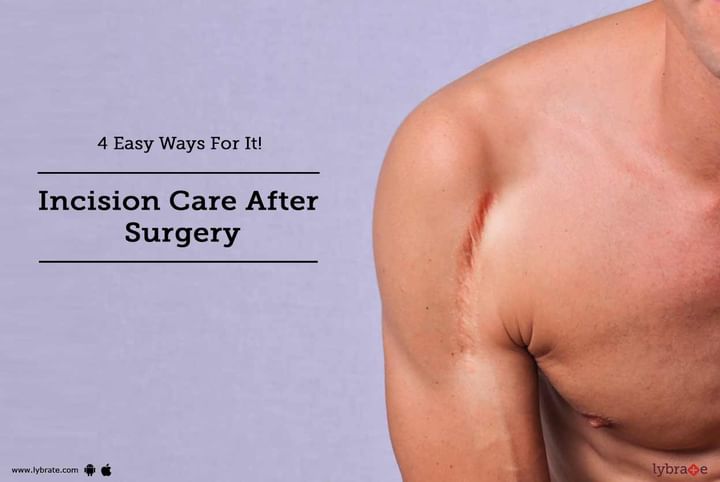Incision Care After Surgery: 4 Easy Ways For It!
Having a surgery, big or small, will subject your body to a certain degree of pain. Post-operative care, hence, is of paramount importance. You'll have a surgical wound where the surgeon has made an incision. To ensure that it heals quickly and to reduce the risk of an infection, it is important that you care for your wound area and keep a regular check for unusual signs and symptoms.
Let us take a step back to understand the normal process of how a wound heals. At first, there will be inflammation during the first week when blood flow to your wound increases. This is a crucial care period as your wound is still fresh. The second phase is proliferation where new blood vessels and tissue begin to grow around the area.
The third and final phase is maturation where new cells develop to strengthen the wound and soften the scar. Depending on the location and size of your wound, your surgeon may have used stitches (medically called sutures), metal clips or staples, adhesive dressing, tape or glue. Stitches, clips and staples are usually removed between three and fourteen days after your treatment. Here is how you can care for your surgical incision:
- Change your dressing regularly: Most patients are called to the hospital at regular intervals during the first week for change of dressing two or three times. The nurse or doctor ensures a sterile environment during the process. If you find your dressing falling of late night and you can't go to the hospital, you can wash your hands thoroughly and open a new sterile dressing package and apply to your wound. At all times, touch only the edges of your old / new dressing.
- General care for your incision site: Keep the incision site as clean and dry as possible. Keep it covered with plastic during a shower if it is on your hands or legs or take a sponge bath until you get a green signal from your doctor. Protect the incision from sunlight. Some incisions may get itchy as they heal. This is quite common, but it is important not to scratch your incision during this period.
- Eating and drinking properly to heal quickly: Vitamin C and Proteins are important as they aid in healing of wounds. Eat a healthy and balanced diet, which includes a variety of lean meat, fish, eggs, dairy products, fruit and vegetables. Make sure that you drink enough water because if you're dehydrated, your wound may take longer to heal.
- Look for signs of infection: The common signs of an infection are redness, swelling, unusual drainage, warmth around the incision site increased pain or tenderness at the incision, incision opens up or a fever of more than 100.4 degrees Fahrenheit.
In case you have a concern or query you can always consult an expert & get answers to your questions!



+1.svg)
